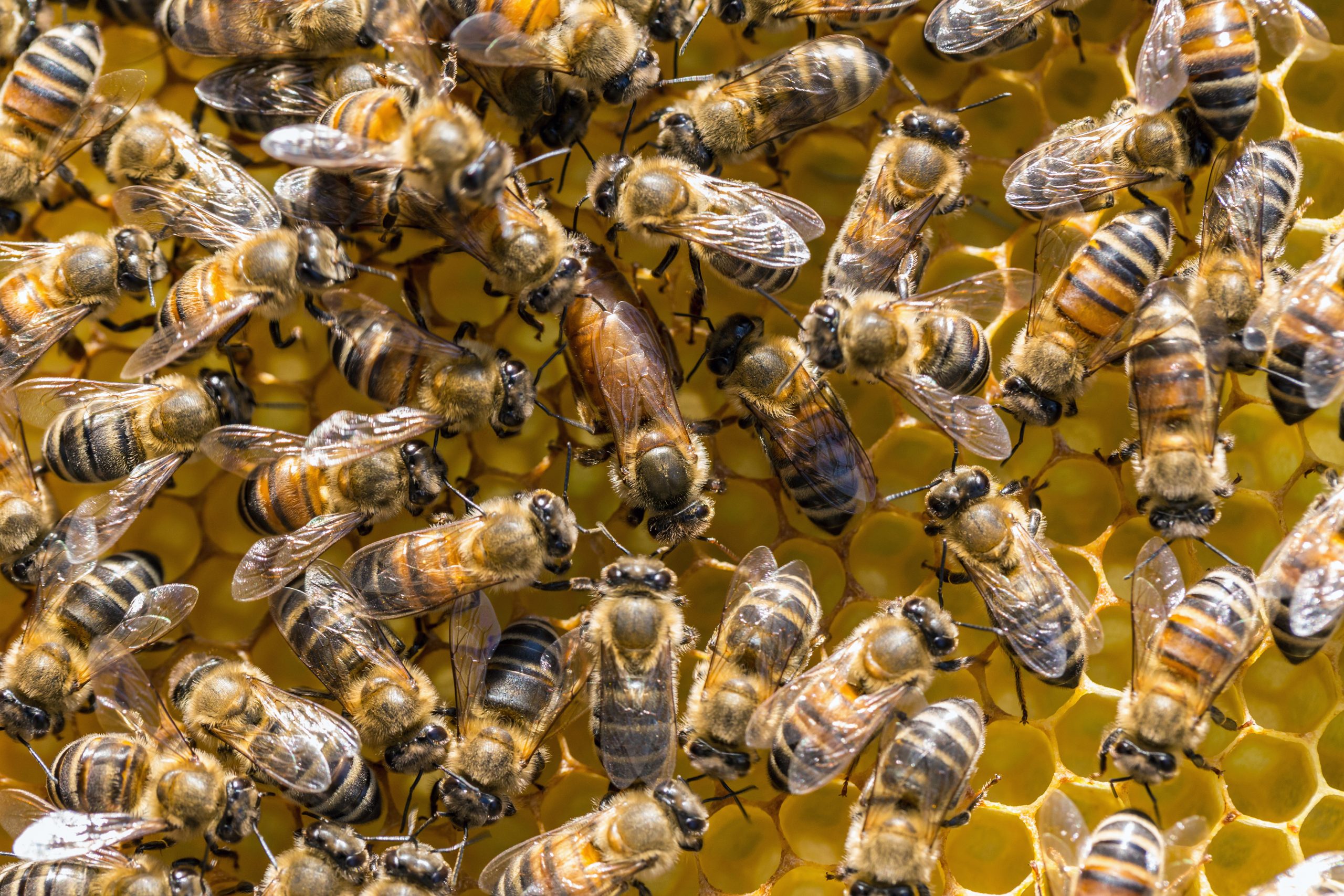Queen Honeybees Hurt by Extreme Temperature Changes
February 22, 2016
Bee Colony Collapse, Honey Bees
Much research has been dedicated to improving beekeeping practices and the declining population of honeybees, and part of that effort has been to discover why honeybee queens now have shorter lifespans and reproductive periods. Beekeepers often purchase queens from breeders and then have them shipped by mail, but according to an article in the journal PLOS One, high or fluctuating temperatures during shipping may be contributing to queens failing faster than in previous years. “Either stress individually or in combination could be part of the reason beekeepers have reported having to replace queens about every six months in recent years when queens have generally lasted one to two years,” said Jeff Pettis, a USDA entomologist.
Queen bees only mate for the first few weeks of their lives and then use stored semen to fertilize eggs from them on out. When beekeepers order queen bees from the breeder, the queens are already mated, and it is believed that the extreme temperature changes that incur during shipping directly affect the viability of the sperm already stored in the queen’s body. These changes also affect the queen’s ability to produce enough viable eggs to maintain the adult worker population in the colony, thereby shortening her reproductive lifespan. At $15 for replacement queens, this is a heavy financial loss for beekeepers, especially if this happens in hundreds of colonies.
USDA entomologists, including Jeff Pettis, conducted an experiment to test these theories and found inseminated queens exposed to 1-4 hour long periods of temperature extremes (104 degrees F and 41 degrees F) had sperm viability drop from 90 percent to 20 percent. Other researchers tested queen honeybees sent from California, Georgia, and Hawaii by the US Postal Service to Maryland during July and September, with the packages containing thermometers to record temperature changes. They found queen bees exposed to temperature extremes had sperm viability drop by 50 percent.
While these findings are worrisome, researchers are happy to have a solid basis for understanding the issue. “The good news is with fairly simple improvements in packaging and shipping conditions,” said Pettis, “we could have a significant impact on improving queens, and, in turn, improving colony survival.”
The goal is to eventually get queen honeybees back up to one to two years per lifespan, and while Pettis and his colleagues understand that that is a long way off, they also understand that the time is worth it. “Getting queens back to lasting two years may well be one of the links in getting the beekeeping industry back to a sustainable level.”


.jpg)



